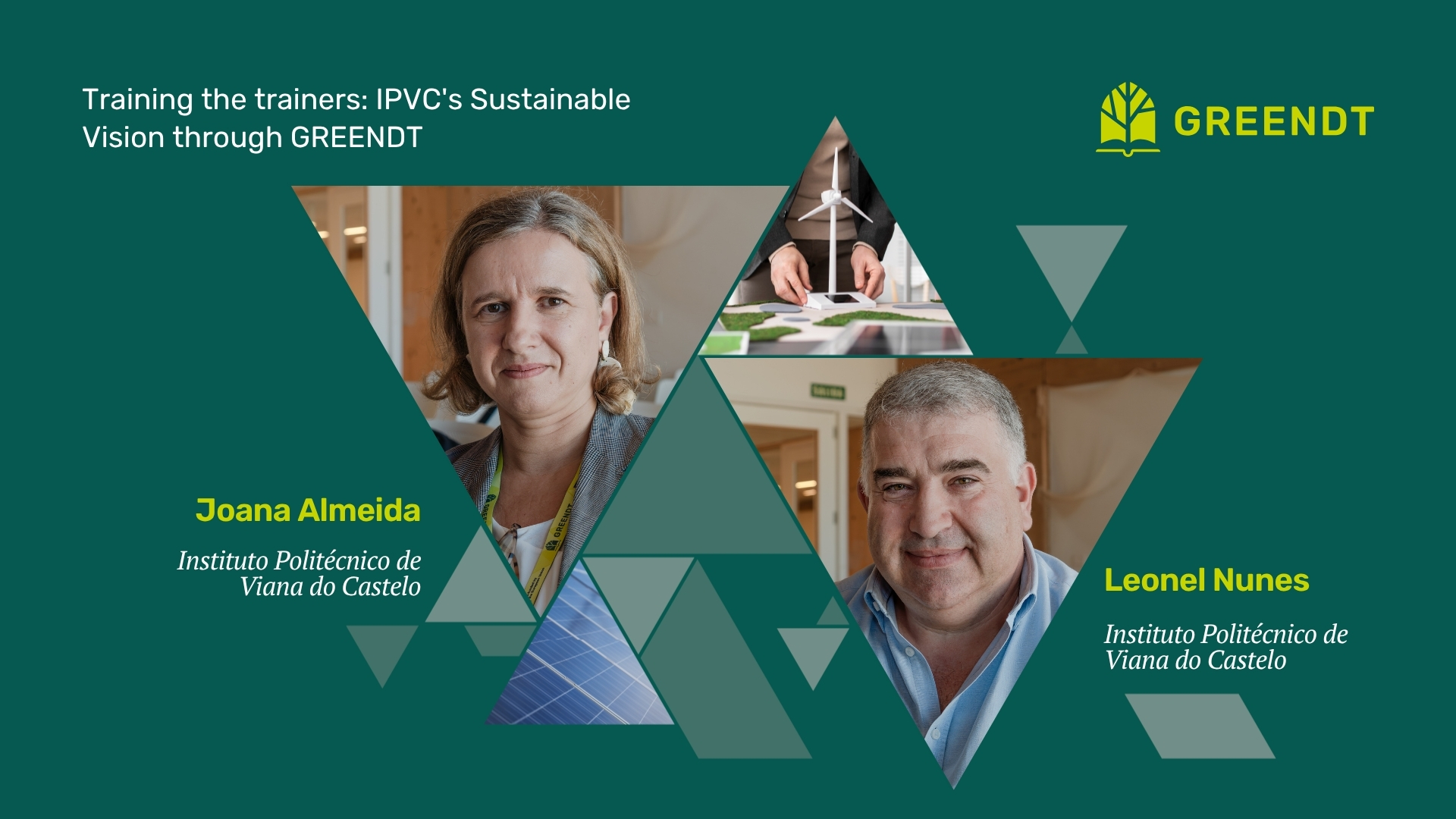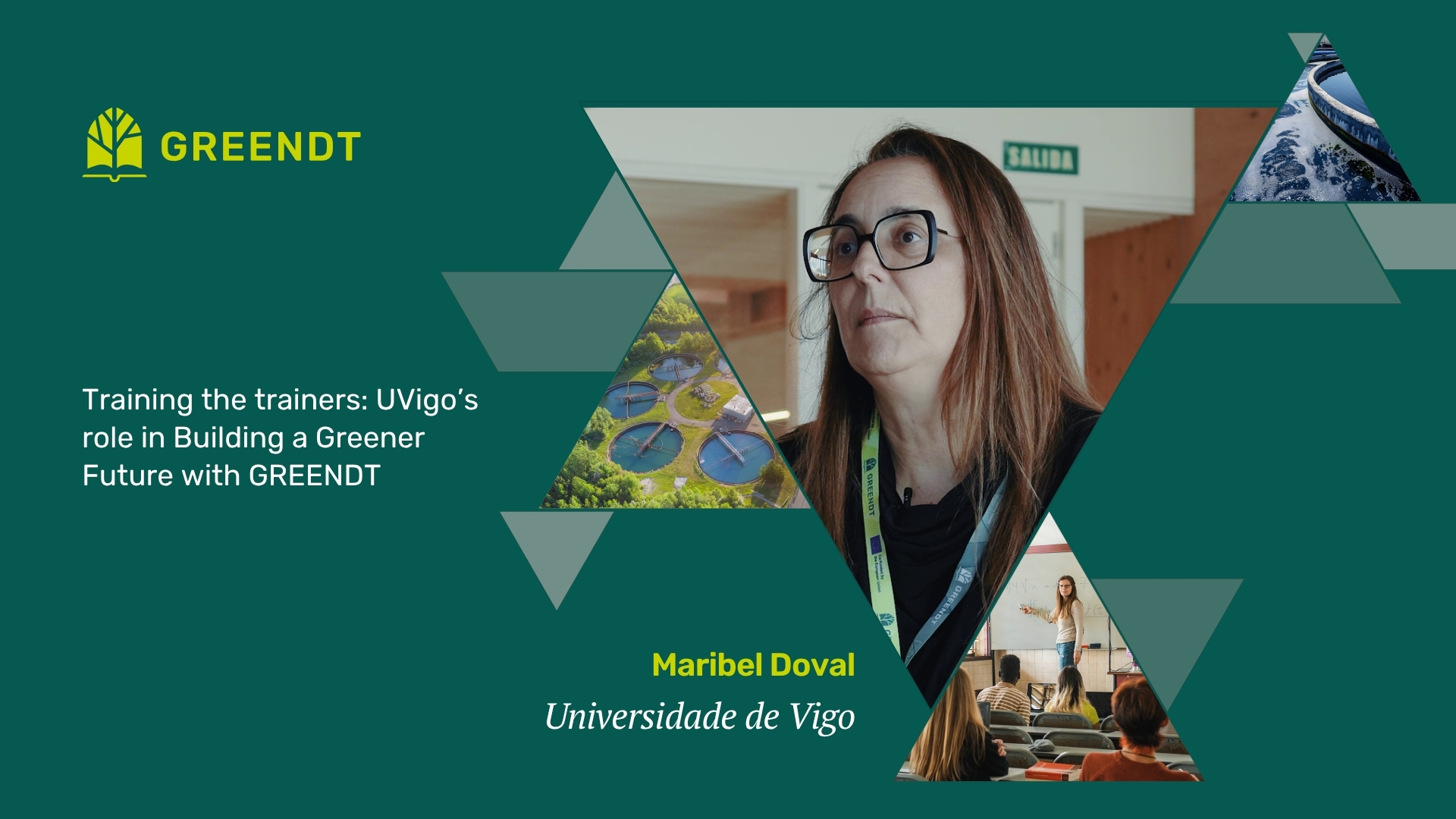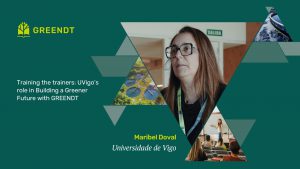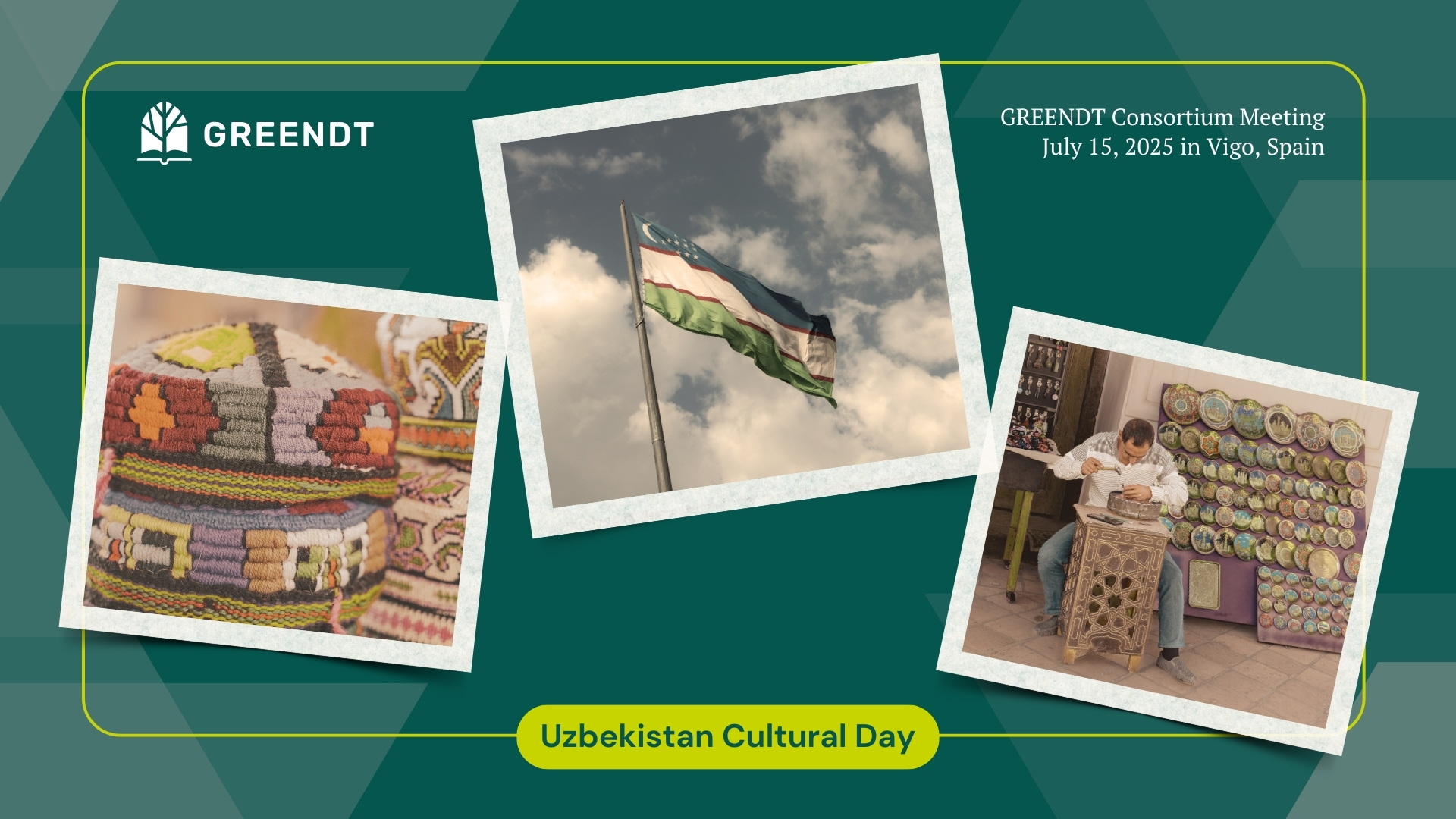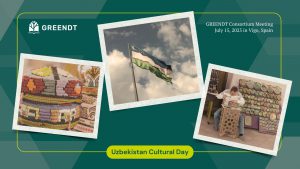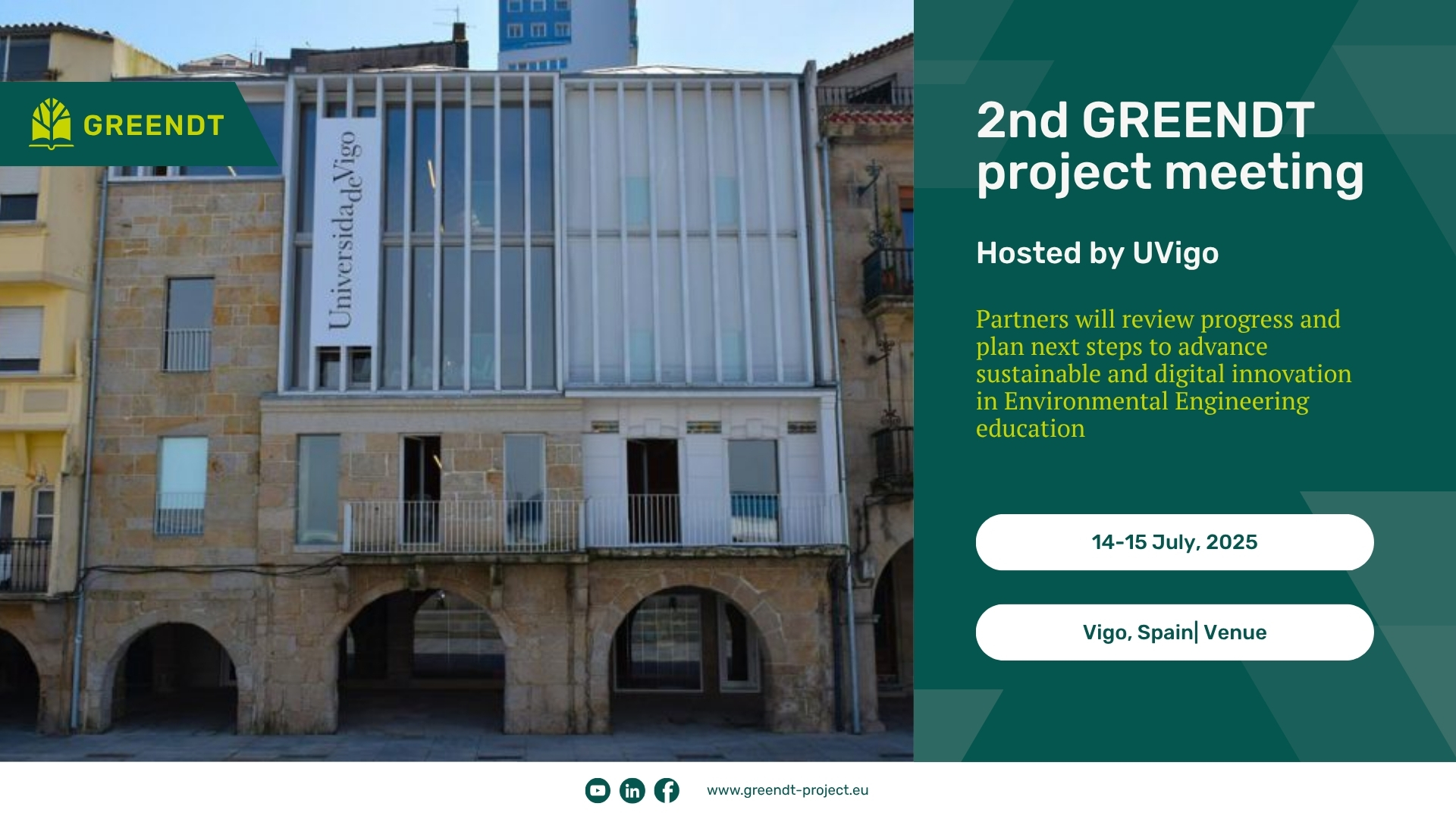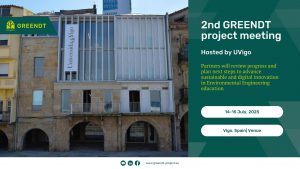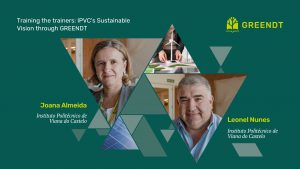
The GREENDT project continued its mission to reshape engineering education through sustainability with its second Train-the-Trainers (ToT) workshop, hosted from July 21 to 23, 2025, at the Instituto Politécnico de Viana do Castelo in Portugal. As part of Task 3.3 – Implementation of ToT-Enhanced Training Sessions, the event focused on the capacity building in sustainable energy management, natural radiation, and geospatial technologies for researchers, educators, engineers, and students from across the consortium.
Professors Joana Almeida and Leonel Nunes, both from IPVC, emphasized the relevance of these trainings to capacitate attendees on how to address Uzbekistan’s environmental main issues.
Day 1 – Sustainability, Risk, and Indoor Environmental Quality
Participants explored integrated approaches to sustainability in engineering, covering the following topics:
- Sustainability and Energy Efficiency in Buildings.
- Technical Visit to Laboratories of the School of Technology and Management.
- Natural Radioactivity: Indoor Radon Assessment and Mitigation.
- Risk Assessment.
The sessions reflected the need to address health, safety and sustainability issues, that can be tackled throughout the project.
Day 2 – Renewable Energy, Land Use, and Geospatial Innovation
Building on the first day’s foundations, the second round invited participants to deepen their understanding of sustainability through real-world applications, spatial analysis, and strategic planning tools designed to address complex environmental challenges. Sessions addresed:
- Fossil vs. Renewable Energies.
- Technical Visit to the Sustainable Building.
- Land Management.
- Practical Geoprocessing and Remote Detection.
Focusing on Uzbekistan’s actual issues, the sessions highlighted the importance of integrated planning for sustainable development.
Day 3 – Field Visits and Final Wrap-Up
On the last training day, participants had the opportunity to connect theoretical learning with real-world practices in renewable energy, water management, and sustainable waste treatment through direct engagement with regional institutions and industry leaders. Visits included:
- ENERCON (Lanheses): Visit to a major renewable energy manufacturer.
- Águas do Alto-Minho (Gil Eanes Ship-Museum): Exploration of Portugal’s maritime life and regional water management initiatives.
- RESULIMA (Vila Fria): Study visit to a waste treatment and sustainability innovation facility.
The day concluded with a final wrap-up session led by IPVC members, reinforcing key takeaways from the training and setting the third workshop to be held later in October, in Uzbekistan.
Towards Sustainable Transformation in Engineering Education
Throughout the three-day workshop, faculty and technical staff from partner institutions engaged in knowledge exchange and co-development of educational materials — also laying the groundwork for sustainable collaboration beyond the GREENDT project.
This second ToT workshop not only delivered specialized technical training, but also reinforced GREENDT’s broader vision: equipping educators to train future engineers capable of addressing global environmental challenges through innovation, equity, and collaboration.


